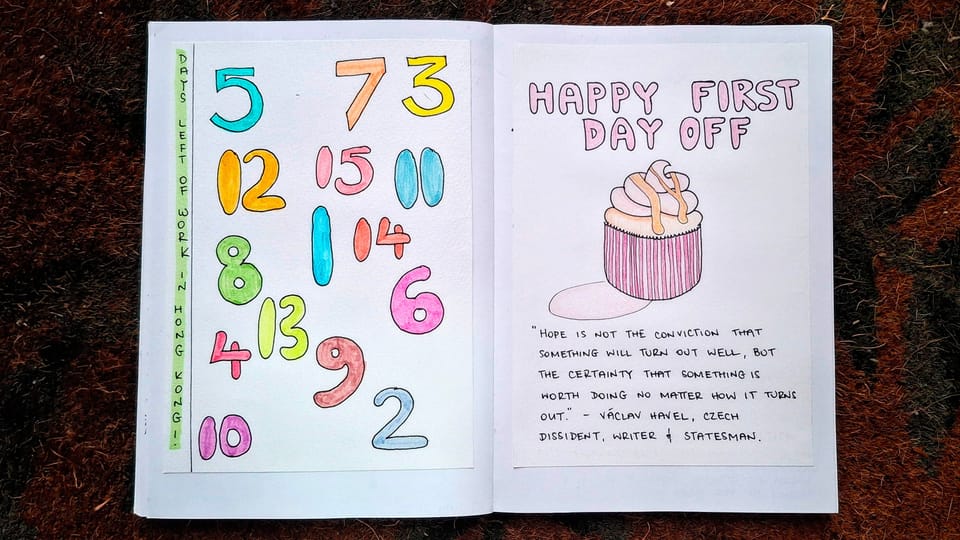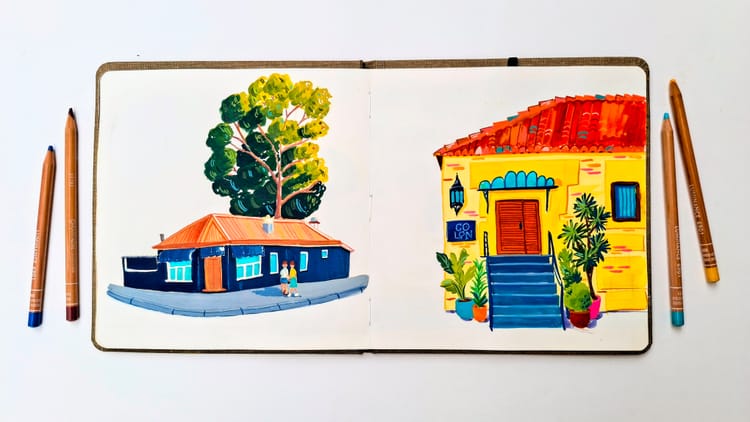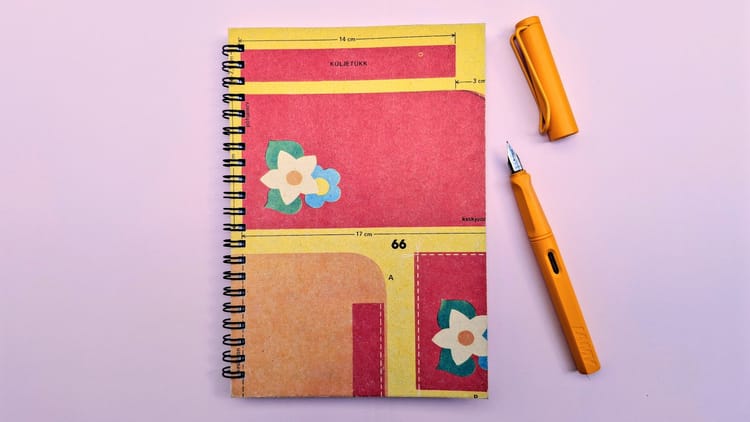The self-care habit I stopped to find more ease

When I worked as a lawyer I tracked my work days in six-minute increments for almost ten years. (If your immediate thought is that that sounds terrible, you would be correct.) When I finished work in the evenings or on weekends, I had limited energy left, so I put pressure on myself to make my self-care as efficient as possible.
When you’re working too much, feel burnt out and realise you need to start prioritising self care more, it can make sense to track a new habit. Small wins can give you motivation to keep going, make incremental gains and create a routine.
So, I got into bullet journalling and tracked things like:
- how many steps I walked every day,
- how often I did yoga or went to the gym,
- how often I practised Spanish, and
- how many books I read.
I spent a lot of time disconnected from my body and its needs. I tried to force myself to meet certain goals, and approached self care as if it was a job. Often the goals were too demanding, I’d fail to meet them and make myself feel worse.
Some of this habit tracking made sense when I started it. For example, when I worked in London, my apartment was a 5-minute walk from the office. Minimising my commute gave me more time to sleep, see my friends or, let’s be real, bill extra hours. It also meant that I did very few steps on workdays unless I prioritised going for a walk at lunch. It was helpful to have a watch that tracked my daily steps and sent me reminders if I’d been sitting for too long. When I added gentle movement to my day, I tended to sleep better.
But at some point, this habit tracking became an end in itself. I was still tracking my steps every day in Spain, even though the nature of my life here means I get enough steps in. For example:
- I don’t have a car and live in a walkable city,
- I take my dog for at least one walk every day,
- twice a week I go to yoga classes, and
- I work part-time, so I have more energy to pay attention to how much movement I’m doing.
The same pattern is true of tracking my creative practice. I started painting as a form of self-care during the acute phase of the pandemic. I had a tracker (above) that counted down my last fifteen days of work as a lawyer. Every evening I coloured in one of the hand-drawn numbers and it was essential to make it through the next day.
But now I’ve set my life up in a way that means that I tend to sketch every few days without needing to track anything. I go to urban sketching, I have regular online meet-ups with other artists, and I paint commissions. And sometimes I just pick up a brush because painting is something that brings me joy rather than something I feel like I should be doing.
For the last six months, I’ve tracked very little and stopped wearing my smartwatch. I’ve tried to pay attention to how I feel and what my needs are, rather than meeting arbitrary goals for how many steps I should walk or how often I should sketch. It’s good for us to play, and sometimes that means listening to ourselves and doing something just because it feels good in the moment. It also means acknowledging that the rate at which we do a particular form of self-care doesn’t have to be consistent every day or every week. Our interests and needs change over time.
If you’re currently tracking habits and finding that process helpful or motivational, that’s great! But if you’re struggling, take a moment to think about whether there are habits you’re doing that are no longer making your life easier. If so, maybe it’s time to let those things go.
What forms of self-care do you track? Is that tracking habit still serving you?
When was the last time you let yourself play? (If you can’t think of one, here is your invitation to do so, even if it’s just for ten minutes).
Sketches from Granada celebrates every-day moments of connection with strangers, friends and ourselves. I know how easy it is not to be present in your life, and I hope these sketches inspire you to seek out the moments worth savouring in your own life.
If this post resonated with you, subscribe now to receive it directly in your inbox and keep this work accessible. And please share it with a friend you think might appreciate it too!



Comments ()